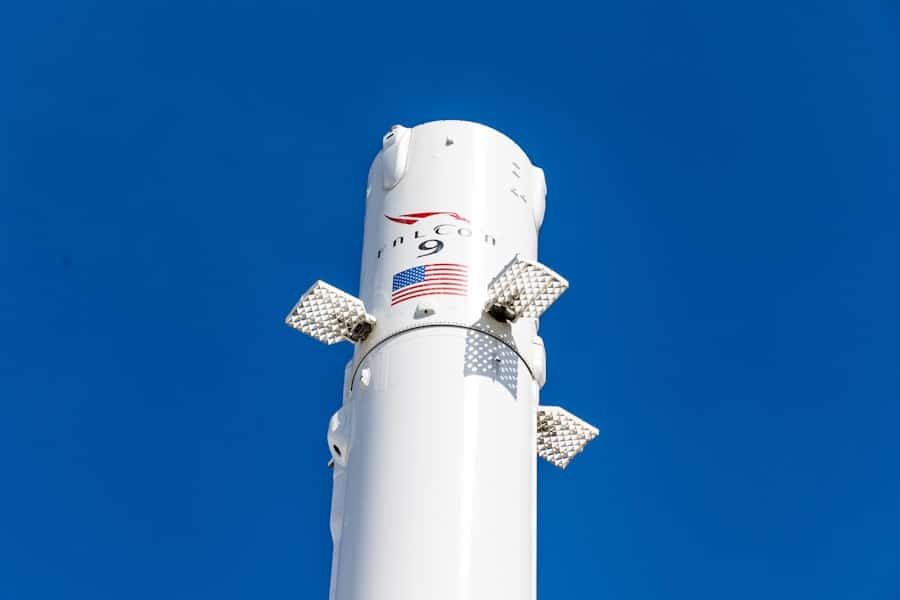The landscape of space exploration has undergone a dramatic transformation over the past two decades, marked by the emergence of private companies that have taken on roles traditionally reserved for government agencies. This shift began in earnest in the early 2000s, when entrepreneurs like Elon Musk, Jeff Bezos, and Richard Branson recognized the potential for commercial ventures in space. The establishment of companies such as SpaceX, Blue Origin, and Virgin Galactic signaled a new era where private entities could not only participate in space exploration but also drive innovation and reduce costs.
The motivations behind this rise are multifaceted, encompassing technological advancements, economic incentives, and a growing public interest in space. One of the key factors contributing to the rise of private space exploration is the significant reduction in launch costs. Historically, space missions were prohibitively expensive, often requiring billions of dollars in funding from government budgets.
However, advancements in technology and engineering have allowed private companies to develop more efficient rockets and spacecraft. For instance, SpaceX’s Falcon 9 rocket is designed for reusability, drastically lowering the cost per launch.
As a result, a new wave of startups and established companies are now vying for a stake in the burgeoning space economy.
Key Takeaways
- Private space exploration has seen a significant rise in recent years, with companies like SpaceX leading the way.
- SpaceX’s impact on the aerospace industry has been profound, driving innovation and competition in the sector.
- Innovations in rocket technology have enabled private space companies to make significant advancements in space travel and exploration.
- The commercialization of space travel is becoming a reality, with companies working towards making space tourism accessible to the public.
- Competition among private space companies is fierce, driving further advancements and pushing the boundaries of what is possible in space exploration.
SpaceX’s Impact on the Aerospace Industry
SpaceX has emerged as a dominant force in the aerospace industry, fundamentally altering how both private and public entities approach space missions. Founded in 2002 by Elon Musk, SpaceX’s mission was to reduce space transportation costs and enable the colonization of Mars.
The successful launch and recovery of the Falcon 9 rocket marked a turning point, demonstrating that reusable rockets could be a game-changer for the industry. The implications of SpaceX’s achievements extend beyond its own operations; they have catalyzed a broader transformation within the aerospace sector. Traditional aerospace giants like Boeing and Lockheed Martin have had to adapt to this new competitive landscape.
They are now investing in their own innovations and partnerships with private companies to remain relevant. For example, NASA’s Commercial Crew Program has seen collaborations with SpaceX and Boeing to transport astronauts to the International Space Station (ISS). This partnership not only underscores the importance of private companies in fulfilling governmental objectives but also highlights how SpaceX has set new standards for reliability and cost-effectiveness in space travel.
Innovations in Rocket Technology

The innovations brought forth by private companies have revolutionized rocket technology, leading to significant advancements that enhance performance and reduce costs. One of the most notable innovations is the development of reusable rocket systems. SpaceX’s Falcon 9 and Falcon Heavy rockets are designed to return to Earth after delivering payloads to orbit, allowing them to be refurbished and reused for subsequent missions.
This approach contrasts sharply with traditional expendable rockets, which are discarded after a single use. The reusability factor not only cuts costs but also minimizes waste, aligning with growing environmental concerns. In addition to reusability, advancements in propulsion systems have played a crucial role in enhancing rocket technology.
Companies like Blue Origin are developing innovative engines such as the BE-3 and BE-4, which utilize liquid oxygen and hydrogen as propellants. These engines are designed for efficiency and reliability, enabling longer missions and greater payload capacities. Furthermore, research into hybrid propulsion systems and electric propulsion technologies is gaining traction, promising even more efficient means of reaching orbit and beyond.
These innovations are not merely incremental improvements; they represent a fundamental shift in how rockets are designed and operated, paving the way for more ambitious missions.
The Commercialization of Space Travel
The commercialization of space travel has opened up new avenues for exploration and tourism that were once confined to science fiction. Companies like Virgin Galactic and Blue Origin are at the forefront of this movement, offering suborbital flights that allow civilians to experience weightlessness and view Earth from space. Virgin Galactic’s SpaceShipTwo has successfully completed several test flights with crew members aboard, demonstrating the feasibility of commercial space tourism.
This venture not only caters to affluent individuals seeking unique experiences but also serves as a catalyst for broader public interest in space exploration. Moreover, the commercialization of space travel extends beyond tourism; it encompasses a wide range of activities including satellite deployment, research missions, and even asteroid mining. The potential for profit in these areas has attracted significant investment from venture capitalists and established corporations alike.
For instance, companies like Planet Labs are leveraging small satellites to provide Earth imaging services for various industries, from agriculture to urban planning. As more players enter the market, the landscape of space commerce is becoming increasingly diverse, with opportunities for innovation and collaboration across sectors.
Competition among Private Space Companies
The competitive landscape among private space companies is intensifying as new entrants emerge and established players expand their capabilities. This competition is driving innovation at an unprecedented pace, as companies strive to differentiate themselves through technology, pricing strategies, and mission objectives. SpaceX remains a formidable leader in this arena, but it faces challenges from other ambitious firms such as Rocket Lab, Northrop Grumman, and Relativity Space.
Each company brings unique strengths to the table; for example, Rocket Lab specializes in small satellite launches with its Electron rocket, catering to a growing market segment. The rivalry among these companies fosters an environment ripe for technological breakthroughs. As they compete for contracts with government agencies and commercial clients, they are incentivized to develop more efficient launch systems and innovative payload delivery methods.
This competition is not limited to launch services; it extends to satellite manufacturing, ground support systems, and even lunar exploration initiatives. The Artemis program by NASA aims to return humans to the Moon by 2024, creating opportunities for private companies to contribute through lunar landers and support missions. As competition heats up, collaboration may also emerge as a strategy; partnerships between companies can lead to shared resources and expertise that benefit all parties involved.
The Role of Government in Regulating Private Space Exploration

Domestic Regulation: A Framework for Safety and Innovation
These regulations are essential for maintaining public safety while fostering an environment conducive to innovation. By establishing clear guidelines and standards, governments can promote responsible space exploration while encouraging economic growth and development.
International Regulation: A Complex Landscape
Internationally, the regulatory landscape is more complex due to varying national policies and treaties governing outer space activities. The Outer Space Treaty of 1967 establishes fundamental principles regarding the use of outer space for peaceful purposes; however, it lacks specific guidelines for commercial activities conducted by private entities.
Towards International Cooperation and Responsible Exploration
As nations grapple with these challenges, there is an increasing call for international cooperation to create cohesive regulations that address issues such as liability for damages caused by commercial activities in space or resource extraction from celestial bodies. The evolving nature of private space exploration necessitates ongoing dialogue among governments, industry stakeholders, and international organizations to establish frameworks that promote responsible exploration while encouraging economic growth.
The Future of Space Tourism
The future of space tourism appears promising as technological advancements continue to lower barriers to entry for civilians eager to experience space travel. Companies like Blue Origin and Virgin Galactic are leading the charge by offering suborbital flights that provide passengers with a brief taste of weightlessness and stunning views of Earth from above. As these companies refine their technologies and operational procedures, ticket prices are expected to decrease over time, making space tourism accessible to a broader audience beyond just billionaires.
Moreover, the potential for orbital tourism is on the horizon as well. SpaceX’s Crew Dragon spacecraft has already demonstrated its capability to transport astronauts to the ISS; this technology could be adapted for commercial flights that take tourists into low Earth orbit for extended stays aboard private space stations or hotels. The concept of orbital hotels has gained traction among entrepreneurs who envision luxurious accommodations where guests can enjoy unique experiences such as zero-gravity dining or panoramic views of Earth’s curvature.
As infrastructure develops and public interest grows, space tourism could evolve into a thriving industry that reshapes our understanding of travel.
The Implications of Private Space Exploration for the Global Economy
The rise of private space exploration carries significant implications for the global economy, creating new markets and opportunities across various sectors. The burgeoning space economy encompasses satellite communications, Earth observation services, scientific research initiatives, and even potential resource extraction from asteroids or other celestial bodies. According to estimates from various industry reports, the global space economy could reach trillions of dollars within the next few decades as demand for satellite services continues to grow alongside advancements in technology.
Furthermore, private space exploration fosters job creation across multiple disciplines including engineering, manufacturing, software development, and research. As companies expand their operations to meet increasing demand for launches and services, they will require skilled professionals who can contribute to these endeavors. Educational institutions are already adapting their curricula to prepare students for careers in aerospace engineering and related fields, ensuring a pipeline of talent ready to support this dynamic industry.
In addition to direct economic benefits, private space exploration can stimulate innovation across other sectors by providing new technologies that can be adapted for terrestrial applications. For instance, advancements in materials science developed for spacecraft can lead to improved products in industries ranging from automotive manufacturing to telecommunications. As private companies continue to push boundaries in space exploration, their contributions will likely reverberate throughout the global economy, fostering growth and innovation well beyond the confines of our planet.
A related article to “How SpaceX and Private Companies Are Redefining the Aerospace Industry” is “The Best Smartwatch Apps of 2023” which discusses the latest advancements in wearable technology. To learn more about the top smartwatch apps for the upcoming year, check out this article.
FAQs
What is SpaceX?
SpaceX, or Space Exploration Technologies Corp., is an American aerospace manufacturer and space transport services company founded by Elon Musk in 2002. It is known for its ambitious goal of reducing space transportation costs and enabling the colonization of Mars.
How is SpaceX redefining the aerospace industry?
SpaceX is redefining the aerospace industry by developing and utilizing reusable rocket technology, which has significantly reduced the cost of space travel. Additionally, the company has been successful in securing contracts with NASA and launching commercial satellites, further establishing itself as a major player in the space industry.
What are some of the achievements of SpaceX?
Some of SpaceX’s notable achievements include the first privately funded spacecraft to reach orbit, the first privately funded spacecraft to dock with the International Space Station, and the first privately funded spacecraft to land back on Earth. The company has also successfully launched and landed multiple Falcon 9 rockets.
How are private companies impacting the aerospace industry?
Private companies are impacting the aerospace industry by introducing innovative technologies, reducing the cost of space travel, and increasing competition in the market. This has led to advancements in space exploration and the development of new space technologies.
What are some other private companies involved in the aerospace industry?
In addition to SpaceX, other private companies involved in the aerospace industry include Blue Origin, founded by Jeff Bezos, which is focused on developing technologies to enable private human access to space; and Virgin Galactic, founded by Richard Branson, which aims to provide suborbital spaceflights for tourists.

